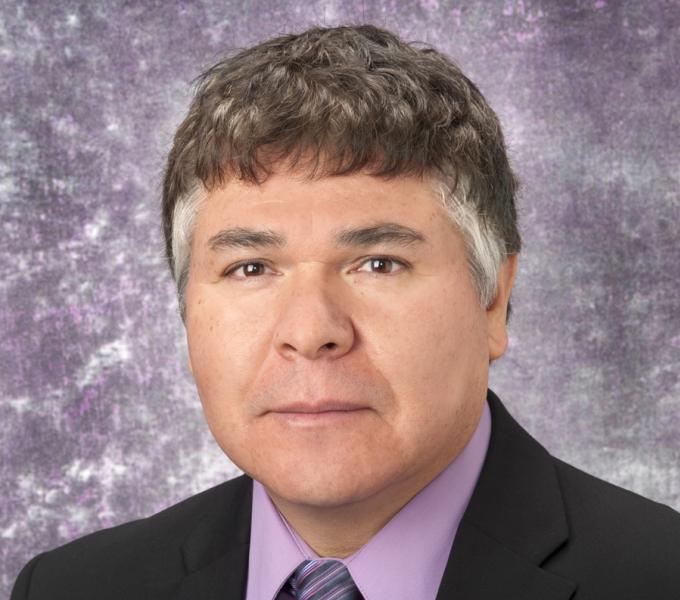- PhD, University of Colorado at Boulder (1998)
Education & Training
Evaluating treatments for traumatic brain injury using pharmacotherapies, environmental enrichment, and neural stem cells.
Dr. Kline’s research includes neurobehavioral recovery and learning after experimental traumatic brain injury (TBI). Therapeutic strategies that include pharmacotherapy and environmental enrichment are utilized alone or in combination to restore function and/or attenuate TBI-induced deficits. Another interest is the evaluation of pharmacological agents that may hinder the recovery process after TBI (e.g., antipsychotics). The long-term goals of the laboratory are to develop therapies that facilitate functional recovery after TBI and to elucidate potential mechanisms for the observed effects. Additionally, the evaluation of therapies shown to benefit outcome in adult models of TBI are being investigated in pediatric models. Dr. Kline’s research is funded by the NIH.
Dr. Kline is an Associate Director of Rehabilitation Research at the Safar Center for Resuscitation Research. His laboratory is in the Rangos Research Center at Children's Hospital where ample collaboration exists between brain experts from the Departments of Physical Medicine & Rehabilitation, Neurological Surgery, and Critical Care Medicine. This wealth of knowledge, which includes, but is not limited to, numerous behavioral assessments as well as a variety of molecular and immunocytochemistry techniques, is available to graduate students whose interests are consistent with the overall goals of the laboratory.
Bondi CO, Semple BD, Noble-Haeusslein LJ, Osier ND, Carlson SW, Dixon CE, Giza CC, Kline AE. Found in translation: understanding the biology and behavior of traumatic brain injury. Neurosci Biobehav Revs., 58:123-146, 2015.
Kline AE, Leary JB, Radabaugh HL, Cheng JP, Bondi CO. Combination therapies for neurobehavioral and cognitive recovery after experimental traumatic brain injury: is more better? Prog Neurobiol., 142:45-67, 2016.
Radabaugh HL, LaPorte MJ, Greene AM, Bondi CO, Lajud N, Kline AE. Refining environmental enrichment to advance rehabilitation based research after experimental traumatic brain injury. Exp Neurol., 294:12-18, 2017.
Folweiler KA, Bondi CO, Ogunsanya EA, LaPorte MJ, Leary JB, Radabaugh HL, Monaco CM, Kline AE. Combining the antipsychotic drug haloperidol and environmental enrichment after traumatic brain injury is a double-edged sword. J Neurotrauma, 34:451-458, 2017.
*de la Tremblaye PB, O’Neil DA, LaPorte MJ, Cheng JP, Beitchman JA, Thomas TC, Bondi CO, Kline AE. Elucidating opportunities and pitfalls in the treatment of experimental traumatic brain injury to optimize and facilitate clinical translation. Neurosci Biobehav Revs., 85:160-175, 2018.
Lajud N, Díaz-Chávez A, Radabaugh HL, Cheng JP, Rojo-Soto G, Valdéz-Alarcón JJ, Bondi CO, Kline AE. Delayed and abbreviated environmental enrichment after brain trauma promotes motor and cognitive recovery that is not contingent on increased neurogenesis. J Neurotrauma, 36:756-767, 2019.
*Bao GC, Bleimeister IH, Zimmerman LA, Wellcome JL, Niesman PJ, Radabaugh HL, Bondi CO, Kline AE. Intermittent administration of haloperidol after cortical impact injury neither impedes spontaneous recovery nor attenuates the efficacy of environmental enrichment. J Neurotrauma, 36:1606-1614, 2019.
*Besagar S, Radabaugh HL, Bleimeister IH, Meyer AE, Niesman PJ, Cheng JP, Bondi CO, Kline AE. Aripiprazole and environmental enrichment independently improve functional outcome after cortical impact injury in adult male rats, but their combination does not yield additional benefits. Exp Neurol., 314:67-73, 2019.
*de la Tremblaye PB, Cheng JP, Bondi CO, Kline AE. Environmental enrichment, alone or in combination with various pharmacotherapies, confers marked benefits after traumatic brain injury. Neuropharmacology 145:13-24, 2019.
Bleimeister IH, Wolff M, Lam TR, Brooks DM, Patel R, Cheng JP, Bondi CO, Kline AE. Environmental enrichment and amantadine confer individual but nonadditive enhancements in motor and spatial learning after controlled cortical impact injury. Brain Res., 1714:227-233, 2019.
Lajud N, Díaz-Chávez A, Radabaugh HL, Cheng JP, Rojo-Soto G, Valdéz-Alarcón JJ, Bondi CO, Kline AE. Delayed and abbreviated environmental enrichment after brain trauma promotes motor and cognitive recovery that is not contingent on increased neurogenesis. J Neurotrauma, 36:756-767, 2019.
Díaz-Chávez A, Lajud N, Roque A, Cheng JP, Meléndez-Herrera E, Valdéz-Alarcón JJ, Bondi CO, Kline AE. Early life stress increases vulnerability to the sequelae of pediatric mild traumatic brain injury. Exp Neurol., 329:113318, 2020.
Moschonas EH, Leary JB, Memarzadeh K, Bou-Abboud CE, Folweiler KA, Monaco CM, Cheng JP, Kline AE, Bondi CO. Disruption of basal forebrain cholinergic neurons after traumatic brain injury does not compromise environmental enrichment-mediated cognitive benefits. Brain Res., 1751:147175, 2021
Manole MD, Hook M, Nicholas M, Nelson BP, Liu A, Stezoski Q, Rowley A, Cheng JP, Alexander H, Moschonas EH, Bondi CO, Kline AE. Preclinical neurorehabilitation with environmental enrichment confers cognitive and histological benefits in a model of pediatric asphyxial cardiac arrest. Exp Neurol., 335:113522, 2021
Lajud N, Roque A, Cheng JP, Bondi CO, Kline AE. Early life stress preceding mild pediatric traumatic brain injury increases neuroinflammation but does not exacerbate impairment of cognitive flexibility during adolescence. J Neurotrauma 38:411-421, 2021
Gutova M, Cheng JP, Tsaturyan L, Adhikarla V, Tsaturyan L, Barish ME, Rockne RC, Moschonas EH, Bondi CO, Kline AE. Intranasally administered L-Myc immortalized human neural stem cells migrate to primary and distal sites of damage after cortical impact and enhance spatial learning. Stem Cells Int., 2021:5549381, 2021
de la Tremblaye PB, Wellcome JL, Wiley K, Lomahan CA, Moschonas EH, Cheng JP, Bondi CO, Kline AE. Chronic unpredictable stress during adolescence protects against adult traumatic brain injury-induced affective and cognitive deficits. Brain Res 1767:147544, 2021.
